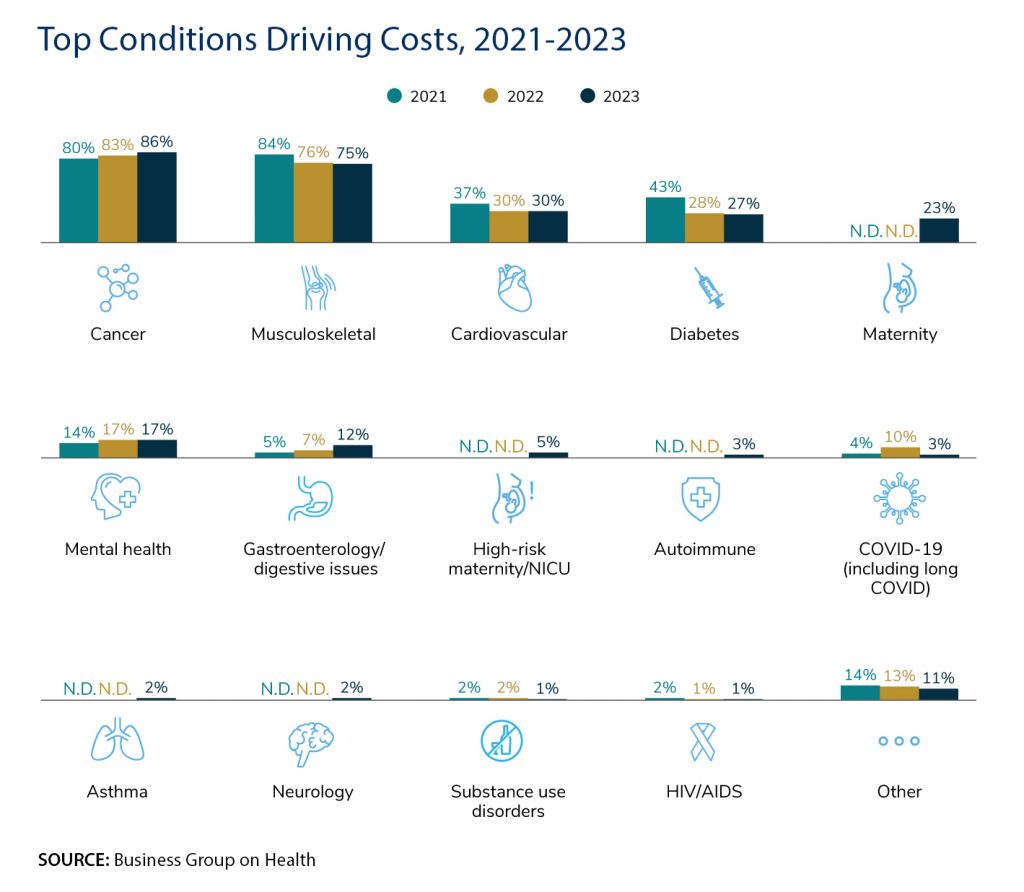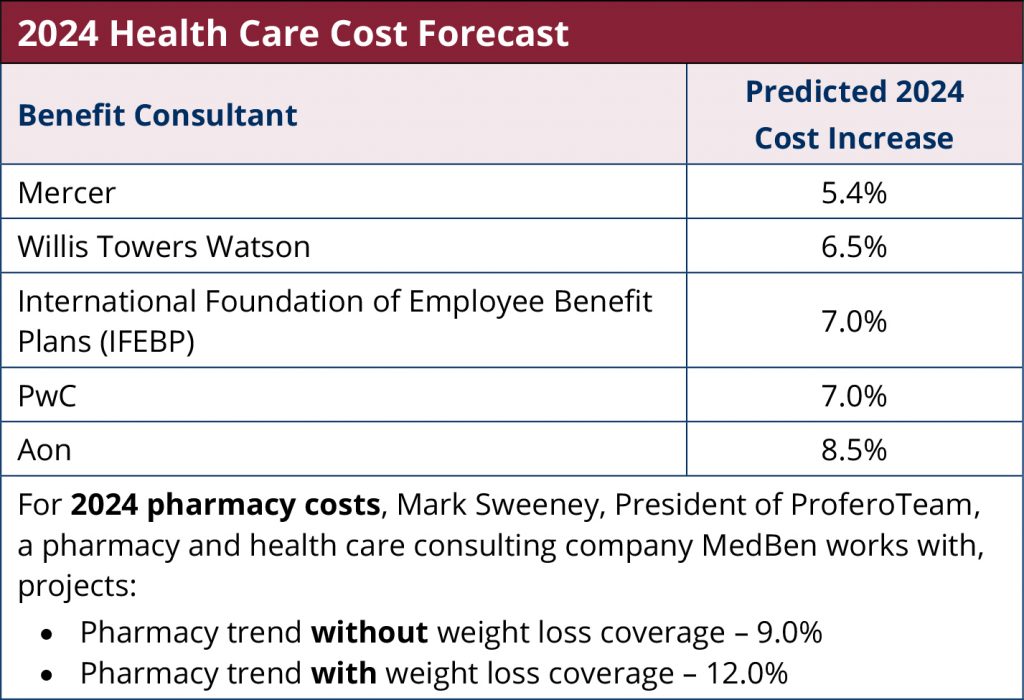A recent survey of large employers by the Business Group on Health revealed considerations that self-funded plans expect to focus on in the coming year, including:
Pharmacy costs. High-priced drugs and overall pharmacy costs are a source of concern for over 90% of surveyed employers, and with good reason – annual cost trend is for prescription drugs is expected to approach 9% in 2024. “Plan design changes to address costly medications and treatments” and greater PBM transparency are strategies employers are exploring for 2024.
Cancer. One in two employers say cancer is the number one driver of health care costs, and 86% say it’s among their top three, due in large part to delayed screenings during the COVID-19 pandemic. In 2024, they plan to focus on advanced screening measures and maintain 100% coverage for preventive and screening services.
Mental health. Seventy-seven percent of employers saw an increase in mental health concerns in 2023, continuing a trend that started during the pandemic. Employers say they will consider ways to improve access to mental health services, such as “providing more options for support and lowering cost barriers to care.”
Transparency. Greater transparency of cost and quality data to allow employers and members to make informed health care decisions will be a priority in 2024, say 87% of respondents. Greater transparency in PBM pricing (73%) and additional reporting (58%) also rank high in employer considerations.
One more survey finding: Employers say they’re also evaluating partnerships and vendors to ensure they create value and result in higher quality, cost-effective services – and here, you can rest assured that MedBen strives to get you as much information about your plan in as many ways as possible. This includes employer reporting and plan reviews, e-briefs and Monitor newsletters, and MedBen Universities and employer roundtables… all designed to show you exactly how your health care dollars are being spent, and what options are available to get the most out of your benefits.
If you ever have questions or concerns about your plan, we’re available to talk. Call MedBen at 888-627-8683.
You can read the complete Executive Summary of the survey at the Business Group on Health website.
In addition to examining employer considerations for the coming year, the Business Group on Health survey also predicts health care costs will rise 6% in 2024. This actually falls near the bottom end of projections from benefits consultants, which range from a low of 5.4% to a high of 8.5%.
Among the reasons consultants gave for the predicted increases:
- Inflation. Even as inflation is slowly subsiding, higher costs for health care wages and supplies are passed on to consumers.
- Post-COVID effect. Providers are still feeling the effects of added expenses they incurred during the pandemic.
- Chronic condition care. People skipping wellness screenings during the pandemic has resulted in higher medical bills.
- Specialty and costly prescription drugs. Higher-end medications continue to take a large chunk of health care spending.
- Weight loss drug popularity. Aon estimates that one percent of its 8.5% projected increase will come from weight-loss drugs alone.
- Gene therapies. While a comparatively small piece of overall health care, their hefty price tag – as much as $3.5 million a dose – is having an outsized impact on costs.


